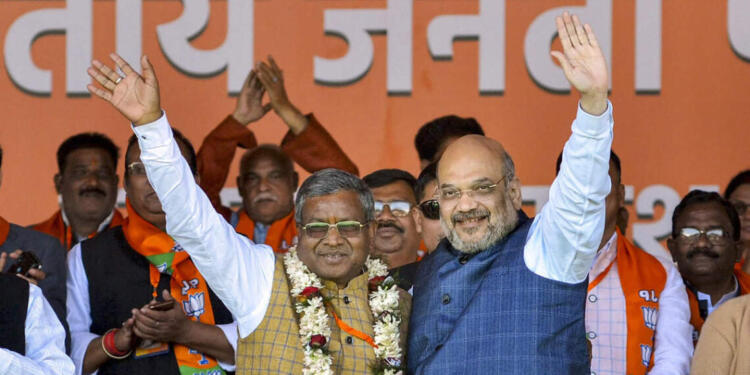The Lok Sabha elections in the country have been concluded, and now, towards the end of this year, assembly elections are set to take place in Haryana, Jharkhand, and Maharashtra. Among these, only Jharkhand is currently governed by the INDIA alliance. If the BJP and the National Democratic Alliance (NDA) fail to secure a majority in the upcoming Jharkhand assembly elections, it will indicate a significant crisis in their popularity.
The responsibility of bringing the BJP to power in Jharkhand rests on the shoulders of the party’s state unit president, Babulal Marandi. He was appointed as the state BJP chief in July last year. Marandi served as the leader of the BJP legislative party in the Jharkhand Assembly from February 2020 to October 2023, after which Amar Kumar Bauri was appointed as the leader of the opposition in the Assembly.
Marandi’s Role and Challenges
Marandi’s entire focus will now be on the electoral success of the party in the state. He was brought back into the BJP by Union Home Minister Amit Shah in February 2020. In 2019, the BJP could only win 25 seats, whereas in 2014, this number was 37. Marandi’s Jharkhand Vikas Morcha (JVM) won three seats, while in 2014, it had won eight seats.
Both parties realized they needed each other, and eventually, they merged in February 2020. Marandi was the first Chief Minister of Jharkhand but separated from the BJP in 2006 to form his own party.
Marandi’s Background and BJP’s Strategy
Marandi being from the Scheduled Tribes (ST) is significant for the BJP as the party has been struggling to win ST-reserved seats in Jharkhand. In the recent Lok Sabha elections, the party could not win a single ST-reserved seat. In the 2019 Assembly elections, the BJP won only two out of 28 ST-reserved seats.
If Marandi succeeds in rallying his community’s votes in favor of the BJP, the party can overcome this challenge.
Anti-Incumbency Wave and Corruption Charges
Another factor in favor of the BJP is the anti-incumbency wave against the current government. In Haryana and Maharashtra, where the BJP is in power, it will have to face its own anti-incumbency wave. But in Jharkhand, this factor might play in favor of the BJP, especially with the ruling Jharkhand Mukti Morcha (JMM)-Congress alliance facing corruption charges.
Former Chief Minister of Jharkhand and JMM leader Hemant Soren has been jailed in an alleged land scam case. A Congress minister, Alamgir Alam, was also arrested after nearly 350 crore rupees in cash were recovered.
Prospects of Defeat and Opportunities for Congress
In such a scenario, a defeat in Jharkhand would boost the morale and image of the INDIA alliance and diminish the confidence of the BJP and NDA. Currently governed by components of the INDIA alliance, JMM, and Congress, a re-election victory would strengthen the opposition’s narrative that voters are rejecting the BJP.
Jharkhand’s Crucial Role
From the perspective of the Lok Sabha elections, Jharkhand is the best bet for the BJP, as the NDA won nine seats there, while the INDIA alliance won five seats. Although the NDA’s tally fell from 12 in 2019 to nine this time, it is still better than Haryana, where the party won only five seats, while the remaining five were won by Congress.
In Maharashtra, the situation was worse for the BJP, with the party’s seats falling from 23 in 2019 to just nine. The INDIA alliance won 30 seats, while the NDA could only win 17 seats.
Conclusion
Thus, the challenges for the BJP are significantly higher in Maharashtra and Haryana, but the anti-incumbency wave in Jharkhand could help the BJP cross the line, provided Marandi navigates it well. A victory for the BJP in Jharkhand would not only be a psychological boost for the party but also a major setback for the Congress and the INDIA alliance.
ALSO READ: How did the British army, using Indian soldiers, manage to defeat the larger Indian armies?
























